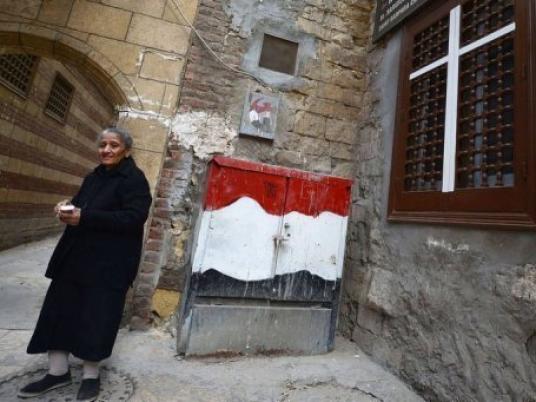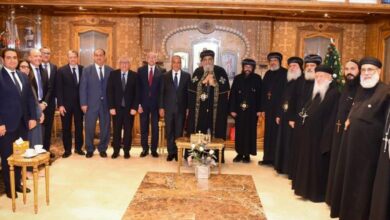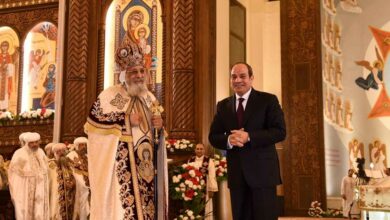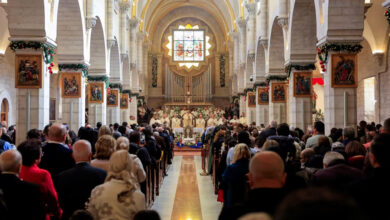
Coptic Christians are preparing to celebrate their second post-revolution Christmas on Monday 7 January, but many say holiday cheer is missing this year.
Christmas and New Year’s celebrations have been marred by consecutive sectarian incidents for the past two years.
Vivian Zaky, an engineer, says that despite feelings of disappointment due to the country’s political turmoil, she is intending to attend the Christmas mass this year.
Her primary grievance is the fact that since the 2011 uprising, the Coptic minority has increasingly been stripped of its rights and deliberately marginalized in society with the ascent of Islamist parties to power, she says.
However, “Christmas is a chance to revive a pleasant atmosphere and ease the tension we have been living in since the outbreak of the revolution,” she says.
“It comes once a year, so I am definitely going to celebrate as usual,” says Fakhry Youssef, a supermarket owner.
However, Youssef says Christmas celebrations have lost their feeling of togetherness, as some of his family members fled the country.
“The festive spirit isn’t the same anymore,” says Youssef bitterly. “Most of my relatives eimmigrated as a result of the growing persecution against us, and the prevailing hard-line religious ideologies.”
Last year, the ultra-conservative Nour Party’s spokesperson said that sending Christmas greetings to Christians is against Muslim beliefs.
Additionally, Copts have been the victims of deadly sectarian attacks and clashes over the past several years. On 9 October 2011, peaceful protesters, mostly Copts, lost their lives in front of the Maspero state TV building, attacked by the Armed Forces as they protested against the destruction of a church in Aswan. Earlier that year, the bombing of the Two Saints Church in Alexandra on New Year’s Eve killed 24 and left more than 100 gravely injured.
Monica Wagdi, a college student, is reluctant to attend mass for fear of possible attacks amid poor police presence in the country.
“This Christmas will be limited to small family gathering at home,” says Wagdi. “It’s not safe to go to churches these days, as a security vacuum continues to dominate the country.”
Michael Aziz, a pharmacist, is planning to attend services and call family for the holidays, but will refrain from holding a special celebration for Christmas, he says.
“The spirit of joy has been lost due to the growing gap between Muslims and Christians, as well as the overwhelming discomfort among us in our own homeland,” Aziz says.
On Monday, the second anniversary of the Two Saints Church bombing, Aziz attended mass at Saint Mina Monastery in Alexandria in solidarity with the victims’ families.
Egypt’s new Coptic Orthodox Pope Tawadros II called on all Coptic Christians to attend mass this Christmas, stressing that the anniversary of the attacks against Copts on this holiday should not prevent Copts from expressing joy during festive season.
On 6 January 2010, eight Copts were shot in front of a church in the southern town of Nagaa Hammadi after completing prayer services.
“Celebrating the birth of Christ is a must. Nothing can prevent me from going to the Lord’s home,” Hany Mouris, a vendor, says optimistically.
“Let’s pray for tolerance and understanding in the upcoming year; it might bring the nation together.”
According to government statistics, Copts — the vast majority of Egyptian Christians — represent around 10 percent of Egypt’s population.
This piece was originally published in Egypt Independent's weekly print edition.




